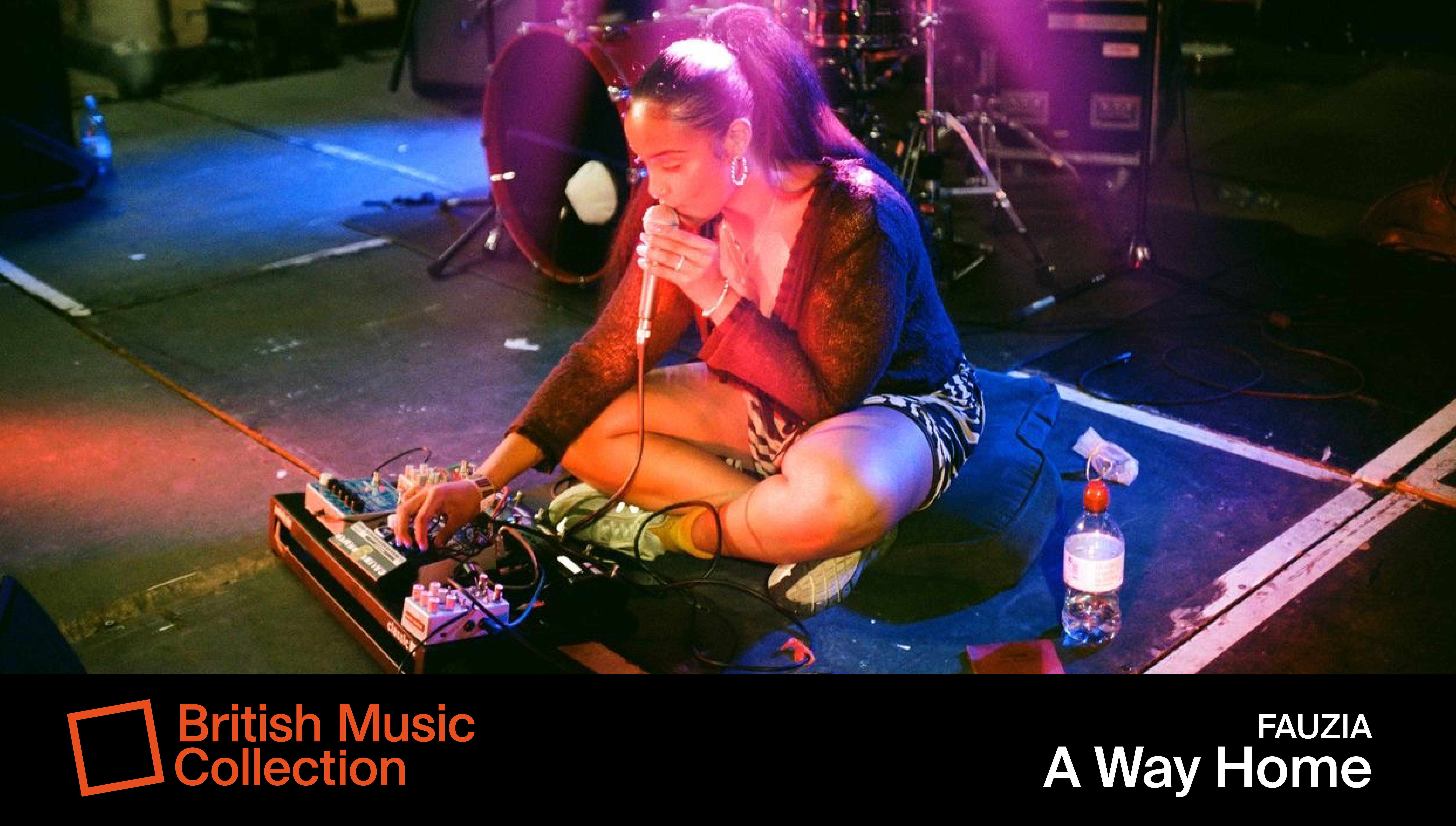
Listen to A Way Home, a new track from FAUZIA, created as part of the British Music Collection's 2022 Black Composers Open Call.
We’re excited to share A Way Home, a new work by FAUZIA.
FAUZIA first broke through as a DJ, but the start of 2020 saw her showcase her own original music for the first time to high praise from the likes of Resident Advisor, Mixmag, DJ Mag, and Crack. She now expends her creative energy working on new music, continuing to DJ with a monthly NTS show, and with select live performances.
A Way Home is a choral exploration using the voice as a guide back to ourselves, our homes. Inspired by the oral traditions of Somali culture, this piece weaves together 3 voices to create a meditative experience, to calm and nurture. This piece invites listeners to sit with themselves, and interact with the music with what comes innately to them, with the hopes of connecting themselves back with their bodies. Words by Olivia Douglass.
Listen to A Way Home below.
soundandmusic · A Way Home - FAUZIA
Music by FAUZIA, Words by Olivia Douglass.
This work was created as part of our 2022 nationwide call for new sonic works celebrating Black creators on the British Music Collection – read more about the other selected works here.
Q&A with FAUZIA and Grace Bailey, Executive Administrator at Sound and Music
Can you start by telling me about yourself? How did you start to make music and what are your inspirations and influences?
I’ve always enjoyed making music, I grew up trying out a few instruments but never pursued music seriously until my studies. During university I got into DJing and dance music which inspired a lot of my earlier productions. Fast forward to now, I’ve been learning piano for the last year and have been writing classical inspired pieces on piano. I would say I’m inspired by all the music I've encountered throughout my career.
You were awarded a grant to make this work as part of a specific open call for Black composers and music-creators. How has the project interacted with your experience of identity, history and culture as a Black creator in the UK?
Initially I set off on this project to explore the intertextualities of Black (&NB) women’s voices. As the project started to take shape, I was inspired by Somali oral tradition, where poetry, folklore and vocal music was the popular artform. I wanted to reflect how the voice can be home; through grounding ourselves with repeating a chant or singing what initially comes to us. It then became a meditative piece, something that can be listened to when looking for peace or solace. A lot of Somali vocal music comes from improvisation, and that was the energy I connected with while writing this. You’d be surprised with what comes out when you just focus on the feeling over thought. This work explores the myriad identities that the voices of Black women and nonbinary persons can take despite stereotyping.
What was it like to bring so many different voices together? Did you find that your creative practice was influenced or changed by the artists you were working with?
Working with Olivia Douglass, I was inspired to work with poetry which wasn’t my intention initially. But the mix of vocal harmonies and poetry felt reflective of my Somali heritage. It was so lovely to bring these voices together as it felt that there were more commonalities then I had realized, and I do feel that the voice can be used as a healing practice, and through layering these voices I felt the connection between everyone. It’s definitely a piece that calmed me down, and I hope it does the same for others.
Creating a choral composition seems like a marked pivot from your career in DJing. How has the journey from DJing to composing worked out for you? Have you faced any challenges or false perceptions while working across different, and sometimes opposing disciplines?
Initially it was a challenge, as I had no idea how to translate my ideas into a new format, but through studying and learning piano, throwing myself into the deep end of things, I’ve come to really enjoy the pivot. It’s been interesting approaching music from this perspective, as coming from electronic music with a venture into classical; the juxtaposition can work really well together.
What’s next for you, or for this project?
I’m currently working on my debut album and planning to write more music for instruments and voice, with the intention of starting a vocal ensemble.